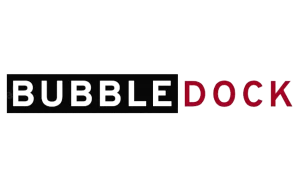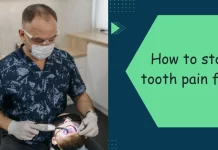Gallbladder attacks, also known as biliary colic or gallstone attacks, can cause severe abdominal pain and discomfort. While it is essential to consult a healthcare professional for proper diagnosis and treatment, there are several steps you can take to alleviate the pain and potentially stop a gallbladder attack while it is happening.
This article will provide an overview of how to stop a gallbladder attack while it is happening – including adopting certain positions, using heat therapy, and employing over-the-counter pain relievers. Keep in mind that these methods are meant to provide temporary relief, and it is crucial to seek medical attention to address the underlying cause of the attack.
Table of Contents
What causes gallbladder attacks?
Gallbladder attacks are typically caused by gallstones, which are hardened deposits of bile or cholesterol that form in the gallbladder. These gallstones can vary in size, from as small as a grain of sand to as large as a golf ball. A gallbladder attack occurs when a gallstone blocks the bile duct, which is responsible for transporting bile from the gallbladder to the small intestine. This blockage leads to a buildup of pressure in the gallbladder, resulting in pain and inflammation.
Several factors contribute to the formation of gallstones and increase the risk of gallbladder attacks:
Excess cholesterol: When the bile contains too much cholesterol, it can lead to the formation of cholesterol gallstones.
Excess bilirubin: Conditions such as liver cirrhosis, certain blood disorders, and infections can cause the production of too much bilirubin, leading to pigment gallstones.
Gallbladder not emptying completely: If the gallbladder doesn’t empty properly, bile may become concentrated, increasing the risk of gallstone formation.
Risk factors associated with gallstone formation and gallbladder attacks include:
Age: People over 40 years old are more likely to develop gallstones.
Gender: Women are more likely to have gallstones than men, due to hormonal factors.
Obesity: Excess body weight increases the risk of gallstone formation.
Rapid weight loss: Losing weight too quickly can increase the likelihood of gallstone development.
Diet: Diets high in fat and low in fibre can contribute to gallstone formation.
Family history: A genetic predisposition to gallstones can increase the risk of developing them.
Diabetes: People with diabetes are more prone to gallstones due to elevated levels of triglycerides.
Ethnicity: Certain ethnic groups, such as Native Americans and Mexican Americans, have a higher risk of developing gallstones.
Read Also: What is a Gastroenterologist?
What are the symptoms of a gallbladder attack?
A gallbladder attack, also known as biliary colic, occurs when a gallstone blocks the bile duct, leading to pain and discomfort. The symptoms of a gallbladder attack can vary in severity and duration, but typically include:
- Sudden and intense pain in the upper right or centre of the abdomen
This pain may begin suddenly, often after a fatty meal, and can last from a few minutes to several hours. It may radiate to the right shoulder or back.
- Nausea and vomiting
These symptoms often accompany the abdominal pain during a gallbladder attack.
- Bloating and gas
Some individuals may experience bloating and increased gas production.
- Indigestion and heartburn
Gallbladder issues can lead to indigestion and heartburn, causing a burning sensation in the chest or throat.
- Sweating or chills
In some cases, a gallbladder attack may cause sweating or chills due to the body’s response to pain and inflammation.
It’s important to note that a gallbladder attack can sometimes be mistaken for other conditions, such as gastroesophageal reflux disease (GERD), heart attack, or pancreatitis. Accurate diagnosis is essential to ensure proper treatment and prevent complications.
How can I prevent gallbladder attacks?
There are several lifestyle changes that can help reduce the risk of developing gallstones and experiencing gallbladder attacks:
Maintain a healthy weight
Obesity is a significant risk factor for gallstones. Adopt a balanced diet and engage in regular physical activity to maintain a healthy weight. Avoid rapid weight loss, as it can also increase the risk of gallstone formation.
See also Know the Mental Benefits of Muay Thai Training
Eat a balanced diet
Consume a diet rich in fruits, vegetables, whole grains, and lean protein sources. This helps to ensure adequate fibre intake, which can reduce the risk of gallstones. Avoid excessive intake of fatty and fried foods, as they can contribute to gallstone formation.
Stay hydrated
Drink plenty of water throughout the day to help maintain proper bile consistency and reduce the risk of gallstone formation.
Exercise regularly
Physical activity can improve overall health and help maintain a healthy weight. Regular exercise may also improve gallbladder function and reduce the risk of gallstones.
Limit high-fat and high-cholesterol foods
Consuming excessive amounts of saturated fats and cholesterol can increase the risk of gallstone formation. Opt for healthier fat sources, such as avocados, nuts, seeds, and olive oil.
Avoid rapid weight loss
If you need to lose weight, aim for gradual, steady weight loss (around 1-2 pounds per week) rather than rapid weight loss, which can increase the risk of gallstones.
Manage diabetes
If you have diabetes, work closely with your healthcare team to manage your blood sugar levels and reduce the risk of gallstone formation.
Read Also: Causes and Solution of Hydroxyzine Side Effects in Women
How long does a gallbladder attack last?
The duration of a gallbladder attack, also known as biliary colic, can vary from person to person. Typically, the pain associated with a gallbladder attack can last anywhere from a few minutes to several hours. In some cases, the pain may subside and then recur in waves. The intensity of the pain can also fluctuate during an attack.
Gallbladder attacks often occur after consuming a fatty meal, as this prompts the gallbladder to contract and release bile. If a gallstone is blocking the bile duct, the contraction can cause pain and discomfort.
How to stop a gallbladder attack before it starts?
Let’s inform you at the very beginning that you cannot immediately stop a gallbladder attack before it starts. Though you may not know how to stop a gallbladder attack while it is happening – you can take certain measures. As severe as the pain is, at a maximum, you can apply a warm compress to that area, try drinking peppermint tea, and even take magnesium supplements. This helps to reduce the pain temporarily.
However, in the long run – it is better to maintain your health to prevent gallbladder attacks. For the same, you need to switch to a healthy diet and eliminate – saturated fats, refined carbs, foods containing high sodium content, red meat, fried foods, and processed sugar from your diet.
The target is to keep your cholesterol levels low and watch your intake of fatty food. To do the needful, you will have to improve your diet and include – fish, lean meat, vegetables-fruit, whole grains, dairy that is low in fat, plant-based meals, and food products high in fiber. Most doctors suggest removing unhealthy fats from your diet and including healthy fats such as – olive and fish oil.
Apart from keeping your diet chart free of processed food, you also need to add a specific exercise regimen to your daily routine. If you have issues regarding your weight, you can always start slow with squats, jumping jacks, and swimming. Otherwise, it is better to go in for heavy cardio, running or crunches/presses.
How to stop a gallbladder attack while pregnant?
There is no specific way to stop a gallbladder attack when you are pregnant. But as an aware individual, and a would-be-mother you must avoid eating or drinking anything unless the pain subsides. If you are hospitalized, then the doctors will automatically give you intravenous fluids. But if the condition deteriorates more – one may after seeking an expert medical opinion consider cholecystectomy.
In case you already have a family history of gallbladder issues, or you have been detected with any such issue during your pregnancy – your doctor will specifically chart out a diet and exercise routine for you. As you are already aware that you need to manage your cholesterol levels and weight to ensure a better gallbladder, especially when you are pregnant (and otherwise also).
Reas Also: Effective Ways to Relieve Tooth Pain Quickly
How to stop a gallbladder attack while it is happening especially when you are pregnant? By changing your diet and exercise schedule.
Understanding that you have been diagnosed with gallstones – you must include –
-
Healthy fats in your diet
Ditch the processed fats and junk food and settle for fish-fats, olive oils, lean meat, Omega 3 fatty acids, and unsaturated fats.
-
Monitor your carbohydrate intake
You must reduce your intake of refined carbs like pasta or white bread. Rather, eat a healthy amount of white rice, at times alternate it with brown rice and brown bread.
-
Increase your fiber intake
Leafy fruits, vegetables and whole grains will give the much-needed carb diet to your body assisting your pregnancy period.
Since you are in a vulnerable condition, therefore it is better to avoid any strenuous exercises. A casual walk, or a little bit of hop-skipping might be allowed (seek medical help) but mostly doctors advise going for yoga.
Prenatal yoga is a great way to manage your cholesterol levels. The formats you can try are – Cat Cow stretch, Konasana, Trikonasana, Shavasana, Legs Up the Wall, Cobbler’s Pose, Gate Pose, and the Warrior pose. These not only help keep your cholesterol in check but also ensure that the baby remains healthy throughout.
What foods should I avoid if I have gallstones?
If you have gallstones, it’s essential to maintain a healthy diet to prevent gallbladder attacks and minimise symptoms. While individual tolerance for specific foods may vary, some general guidelines can help you make better dietary choices. Here are some foods to avoid or limit if you have gallstones:
High-fat foods: Foods high in saturated and trans fats can trigger gallbladder attacks by causing the gallbladder to contract. Limit your intake of fatty meats, full-fat dairy products, fried foods, and processed snacks.
Refined carbohydrates: Reduce your consumption of refined carbohydrates, such as white bread, pasta, and pastries, as they can contribute to gallstone formation.
Sugary foods and beverages: Limit your intake of added sugars, such as those found in candy, soda, and baked goods, as they can contribute to obesity and inflammation, increasing the risk of gallstones.
High-cholesterol foods: Foods high in cholesterol, such as organ meats, egg yolks, and shellfish, may exacerbate gallstone issues for some individuals.
Spicy foods: Some people with gallstones find that spicy foods can aggravate their symptoms. If you notice a correlation between spicy foods and gallbladder pain, consider reducing your intake of these foods.
Instead, focus on consuming a balanced diet that includes:
High-fibre foods: Whole grains, fruits, vegetables, and legumes can help promote digestive health and may reduce the risk of gallstone formation.
Lean protein sources: Opt for lean meats like chicken, turkey, and fish, or plant-based protein sources like beans, lentils, and tofu.
Healthy fats: Include moderate amounts of healthy fats, such as those found in avocados, nuts, seeds, and olive oil.
Stay hydrated: Drink plenty of water throughout the day to help maintain proper bile consistency and reduce the risk of gallstone formation.
How is a gallbladder attack diagnosed?
Here are some of the steps involved in diagnosing a gallbladder attack:
Patient history
The healthcare provider will ask you about your symptoms, including the onset, location, and duration of the pain, as well as any factors that may have triggered the attack, such as a fatty meal. They will also inquire about your medical history, including any previous gallbladder problems or family history of gallstones.
Physical examination
During the physical examination, the healthcare provider will palpate (feel) your abdomen to check for tenderness, swelling, or any other abnormalities. They may also assess your skin and the whites of your eyes for signs of jaundice, which can occur if a gallstone is blocking the bile duct.
Imaging tests
Imaging studies are often used to confirm the presence of gallstones and assess the gallbladder’s condition. Common tests include:
- Abdominal ultrasound
This non-invasive test uses sound waves to create images of the gallbladder and surrounding organs. It is the most common imaging test for diagnosing gallstones.
- Hepatobiliary iminodiacetic acid (HIDA) scan
This test involves injecting a small amount of radioactive material into your bloodstream, which is then traced using a special camera to evaluate gallbladder function and identify blockages in the bile ducts.
See also – Planning For The Year Ahead – An Investment Without A Guarantee
- Magnetic resonance cholangiopancreatography (MRCP)
This test uses magnetic resonance imaging (MRI) technology to produce detailed images of the bile ducts, gallbladder, and surrounding organs, helping to identify blockages or other issues.
Blood tests
In some cases, blood tests may be ordered to check for signs of infection or inflammation, assess liver function, or rule out other conditions that may cause similar symptoms, such as pancreatitis.
What is the treatment for gallstones and gallbladder attacks?
The treatment for gallstones and gallbladder attacks depends on the severity of the symptoms and the presence of complications. Treatment options can range from conservative management to surgical intervention. Here are some common treatment options:
Watchful waiting: In cases where gallstones are asymptomatic or cause mild symptoms, a healthcare professional may recommend a watch-and-wait approach, monitoring the condition without immediate intervention. During this period, patients may be advised to adopt lifestyle and dietary changes to help prevent gallbladder attacks.
Medication: In some cases, medications such as ursodeoxycholic acid or chenodeoxycholic acid may be prescribed to dissolve small cholesterol-based gallstones. However, this approach may take months or years to be effective and is not suitable for all patients, particularly those with large or numerous gallstones or pigment stones.
Pain management: Over-the-counter pain relievers, such as acetaminophen or ibuprofen, may be recommended for temporary pain relief during a gallbladder attack. In more severe cases, a healthcare professional may prescribe stronger pain medications. However, these medications only address the symptoms and not the underlying cause.
Surgery: If gallstones cause recurrent attacks or complications, surgery may be recommended. The most common surgical procedure for gallstone treatment is a cholecystectomy, which involves the removal of the gallbladder. This surgery can be performed using a minimally invasive laparoscopic technique or, in some cases, an open surgery. Once the gallbladder is removed, bile flows directly from the liver to the small intestine.
Endoscopic retrograde cholangiopancreatography (ERCP): In cases where a gallstone is lodged in the common bile duct, an ERCP may be performed to remove the stone. During this procedure, an endoscope is inserted through the mouth, down the oesophagus, and into the small intestine. A small tube is then inserted into the bile duct to remove the stone or to place a stent to keep the duct open.
What are some natural remedies for gallbladder pain?
Natural remedies can provide temporary relief for gallbladder pain, it is essential to consult a healthcare professional to diagnose the underlying cause and recommend appropriate treatment. Here are some natural remedies that may help alleviate gallbladder pain:
- Warm compress
Applying a warm compress or heating pad to the affected area may help relieve pain and relax the muscles. Use caution and do not apply heat directly to the skin to avoid burns.
- Peppermint tea
Drinking warm peppermint tea may help to relax the gastrointestinal muscles and provide some relief from gallbladder pain. Peppermint oil capsules may also be used, but consult a healthcare professional before using any supplements.
- Apple cider vinegar
Some people find that consuming a tablespoon of apple cider vinegar mixed with a glass of water or juice may help relieve gallbladder pain. However, there is limited scientific evidence to support this remedy, and it may not be suitable for everyone, particularly those with stomach ulcers or acid reflux.
- Turmeric
Turmeric contains a compound called curcumin, which has anti-inflammatory properties. Adding turmeric to your diet or taking curcumin supplements may help reduce inflammation and alleviate gallbladder pain.
- Castor oil pack
Applying a warm castor oil pack to the abdomen may help to reduce inflammation and alleviate pain. To make a castor oil pack, soak a piece of flannel or cloth in castor oil, apply it to the abdomen, and cover it with plastic wrap. Place a heating pad or hot water bottle over the plastic wrap and leave it in place for 30-60 minutes.
Frequently Asked Questions
Q1: Can gallstones go away on their own?
Ans: In some cases, small gallstones may dissolve on their own, but larger stones typically require medical intervention.
Q2: Can I live without my gallbladder?
Ans: Yes, you can live without a gallbladder. After its removal, bile flows directly from the liver to the small intestine.
Q3: What is the recovery time after gallbladder surgery?
Ans: Recovery time varies; laparoscopic surgery may take 1-2 weeks, while open surgery may take 4-6 weeks.
Q4: Can I eat a normal diet after gallbladder removal?
Ans: Most people can return to a normal diet after recovery, but some may need to limit high-fat foods.
Q5: Are there any long-term complications after gallbladder removal?
Ans: Complications are rare but may include diarrhoea, bile leakage, or bile duct injuries.






















